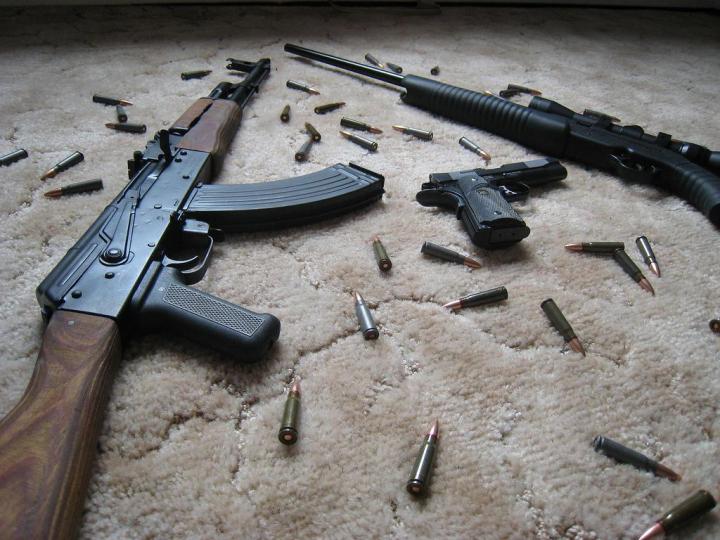
These online “arms bazaars” are usually set up as members-only Facebook groups that sell everything from handguns and grenades to heavy machine guns and guided missiles. Even weapons distributed by the U.S. to security forces and rebel groups have made it on to the social network, reports the New York Times.
In Libya alone, since 2014, there have been 97 documented attempts at the unregulated transfer of missiles, grenade launchers, rockets, and various rifles, through Facebook groups. It is thought that some of the weapons being resold — including a component of an anti-aircraft defense system — were looted from Libyan state custody after the death of the country’s ruler Col. Muammar el-Qaddafi in 2011.
Meanwhile, in Iraq, clandestine Facebook groups are reselling an endless assortment of weapons originally provided by the Pentagon to the country’s government. These include rifles, assault rifles, sub-machine guns, and pistols, many of which still carry inventory stickers and aftermarket add-ons preferred by American forces and soldiers.
A similar approach is being taken in Syria, where arms provided by the U.S. to local rebels have also made their way on to social media. One particular example saw a Facebook seller provide a phone number connected to his WhatsApp, using the two services to sell a wire-guided anti-tank missile system of the same type the U.S. has delivered to rebel groups. When contacted by the Times, the individual claimed he had already sold the launcher, claiming further that he did not recall the price.
Facebook arms dealers explicitly violate the platform’s policies against the sale of weapons, which were instituted in January. Having added more e-commerce features and payment systems to Messenger, the social network has made it clear that “is not a site that wants to facilitate the private sales of firearms,” a Facebook spokesperson told the New York Times. However, the platform still mainly relies on its users to report violations to its Community Operations team in order for it to take action.
Although physical black-market arms traders have always existed in war-torn countries like Iraq, Syria, and Libya, it is thought that the appeal of Facebook groups lies in the platform’s ability to display more catalogue information and images. Overall, the data from arms-sales Facebook groups across the Middle East indicate that approximately 6,000 trades have been executed. Nic R. Jenzen-Jones, an author of the report, claims the figure is “probably much bigger than that.”
The report’s findings were based on data acquired through a study on social media arms trafficking in Libya by the private consultancy Armament Research Services, and through previous reports by the New York Times on Syria, Iraq, and Yemen. Since forwarding the research on to Facebook, six of the seven example groups operating on the platform have been shut down.


